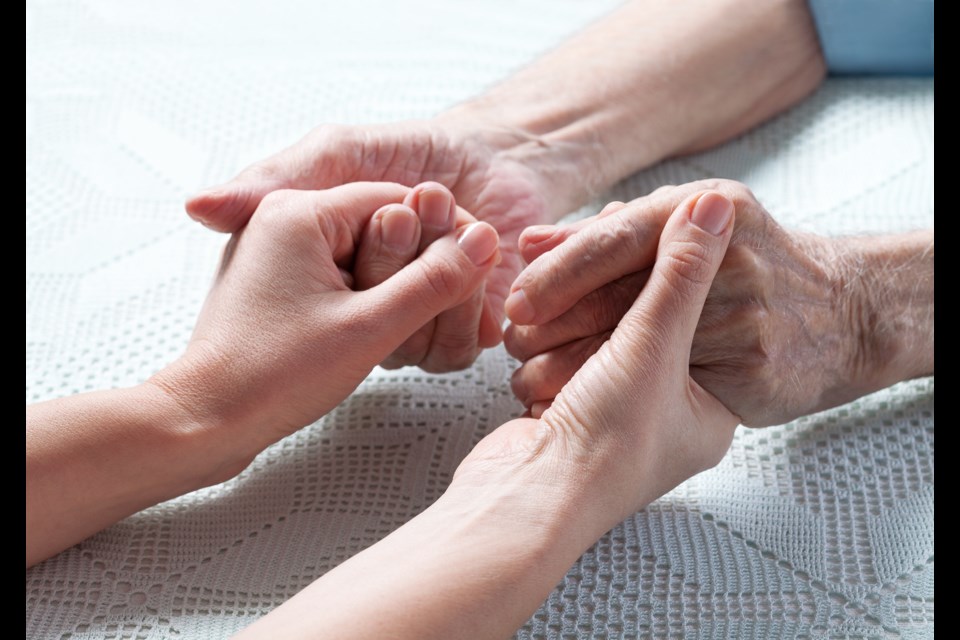Ontario's Long-Term Care Association (OLTCA) said the industry is facing major problems as Ontario continues to battle the COVID-19 pandemic and is moving into what most health care experts are calling the third wave.
The organization is looking into what the third wave of pandemic means for Ontario's long-term care homes.
Donna Duncan, the CEO of the OLTCA, spoke at a recent media briefing where she said there is hope and some optimism but the third wave of the pandemic continues to threaten the well being of Ontario's senior citizens.
Duncan said the newest study by the Canadian Institute for Health Information (CIHI) outlined several of the root causes for the sickness and spread of COVID-19 in many of the long-term care homes in the earlier days of the pandemic.
"What were the root causes in Wave One and Wave Two where we saw the tragic loss of life and we saw consistency in both waves and the CIHI report validated that older and overcrowded buildings, even with reduced occupancy, these are smaller homes with smaller hallways, shared washrooms, not optimal for infection prevention and control."
Duncan said such older homes were also not optimal for cohorting and OLTCA concluded such homes created "significant risks."
She said another serious issue at this time is the staffing crisis in the home care community. She said the pandemic happened at a time when there was already a staffing shortage in many long-term care homes.
"We have lost a lot of employees over the last year. We need to re-staff. We need to restore and we need to rebuild our staffing complement," said Duncan.
Duncan mentioned the Ontario Government has been moving forward with a program in collaboration with Ontario's community colleges by encouraging personal support workers education placements with up to 6,000 students with tuition and placement assistance for home care and long-term care employment.
Duncan said that isn't the only staffing concern. She said the pandemic has taken a toll on the wellness of the existing home care workers.
"Our staffing crisis is amplified by the much-diminished mental health of our staff. Our staff have lost resilience. In many cases they have been traumatized. It has been a very harrowing experience for our staff," said Duncan.
She added there is hope that the introduction of COVID-19 vaccines will lead to staff stabilization
"But we have a lot of work to do to restore trust and confidence in the sector and the only way we're going to do that is if we have a lot of empathy and really look to supporting our staff," she added.
Duncan said the recent Ontario budget made promising commitments of nearly $2 billion for new and upgraded LTC homes, which she said was significant.
"I would say that the budget commitments are the largest financial commitments to the long-term care sector in the history of the sector," said Duncan.
She said the next major effort will involve infection prevention and control support for such things as testing and PPE (personal protective equipment).
Duncan said the resident and staff vaccination programs are effective and anecdotally, she said it has created a new sense of optimism in long-term care homes.
She mentioned that while 95 per cent of residents have taken the vaccine, the number is lower for staff, roughly 67 per cent. Duncan said that number is consistent with the vaccine uptake among nursing home staff in European Union and the UK.
Duncan said there has been some “tension” among families who believe that all staff members who work directly with patients should receive the vaccine. She said it is an issue that is being worked on.
"We've got to find a way to support our homes returning to their way of life," said Duncan. She said her association has been listening to the voices of the residents and their families who want to restore a sense of normalcy in the homes.
She said there is a strong desire to do this but the pandemic third wave with variants of concern (new virus strains) continues to put added pressure on LTC homes.
"So we are still navigating fear. We are still navigating hot spots; our communities in grey zones where there is community spread. We've got to be mindful and continue to be vigilant in all our public health measures," said Duncan.
She said the vaccine spreads hope and already there are homes in Ontario where visitors are being allowed and residents are able to spend time outdoors going for walks and meeting family and friends.
Duncan said she wants to see a new and transparent way for LTC staff, residents councils, family councils and public health to work together on bringing back a "normal" way of life for LTC home residents.
"It has to be a 'how' and not an 'if', but it also has to be safe," said Duncan.
Len Gillis is a Local Journalism Initiative reporter at Sudbury.com, covering health care in Northern Ontario. The Local Journalism Initiative is funded by the federal government.
